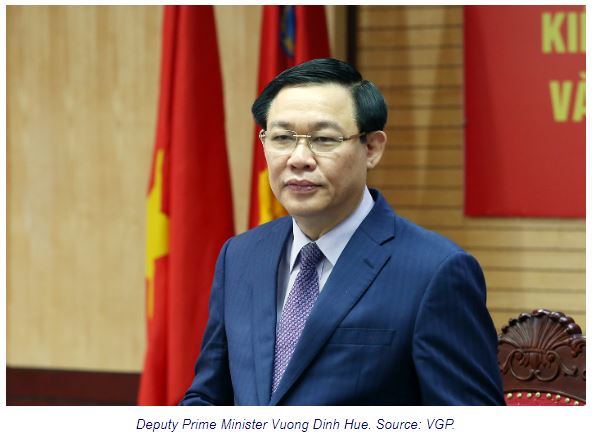Vietnam rules out prohibiting sharing economy
The Hanoitimes – It is difficult to have a specialized law governing all sharing economy activities, due to its fast-changing nature in practice, requiring the availability of specific regulations to address separate issue in each sector.
Vietnam must support the development of sharing economy, instead of prohibiting new business models for fear of it getting out of control, according to Deputy Prime Minister Vuong Dinh Hue.
Current international practices show that there has not been a country in the world with specialized legal framework for sharing economy, while separate interventions are in place in sectors having a business model based on sharing economy, Hue said in a meeting discussing models of sharing economy on February 20.
Vietnam could use this reference in its approach towards new business models, Hue added.
According to Hue, it would be difficult to have a specialized law governing the sharing economy, due to its fast-changing nature in practice, requiring the availability of specific regulations to address separate issue in each sector.
In sharing economy, there have been aspects that are considered sensitive, including the peer to peer lending (P2P), which could be exploited for money lending at sky-high interest rates. However, government agencies must face and deal with this challenge, Hue stressed.
Echoing Hue’s view, Minister of Information and Communications Nguyen Manh Hung said Denmark is the only country in the world having a strategy for sharing economy. However, it is not specific but only a general instruction indicating the government’s support for sharing economy.
The implementation of the strategy is different case-by-case, Hung added.
Referring to the current operation model of ride-hailing apps in Vietnam, a representative of the Ministry of Transport said the ministry is drafting a new decree in replacement of Decree No.86 setting out conditions for transportation business in a fair manner for both traditional taxi companies and ride-hailing companies.
Pham Tien Dung, director general of the Payment Department under the State Bank of Vietnam (SBV), expressed concern over the inefficiency in tax collection of companies operating on sharing economy’s platform.
Dung said that high-tech companies such as Facebook and Google have been making big profits in Vietnam. However, they have not fulfilled their tax obligation in the country, which must be promptly addressed just like many countries in the world, including Thailand in the region.
In Vietnam, sharing economy has not been fully developed but there remains huge potential for development, stated the Ministry of Planning and Investment. There have been a few business models based on sharing economy in Vietnam, including transportation through ride-hailing apps, shared accommodation and P2P lending, which are all conditional businesses.
Management of sharing economy is a challenge for local authority, as most of its business models have not been catalogued for tax declaration and payment, while there has not been a clear line to differentiate between traditional business forms and new models.
Moreover, most of transactions generated from new business models are in e-invoices, while current regulations only recognize paper invoices as valid.
Source: http://www.hanoitimes.vn/economy/2019/02/81E0D373/vietnam-rules-out-prohibiting-sharing-economy/


 English
English




